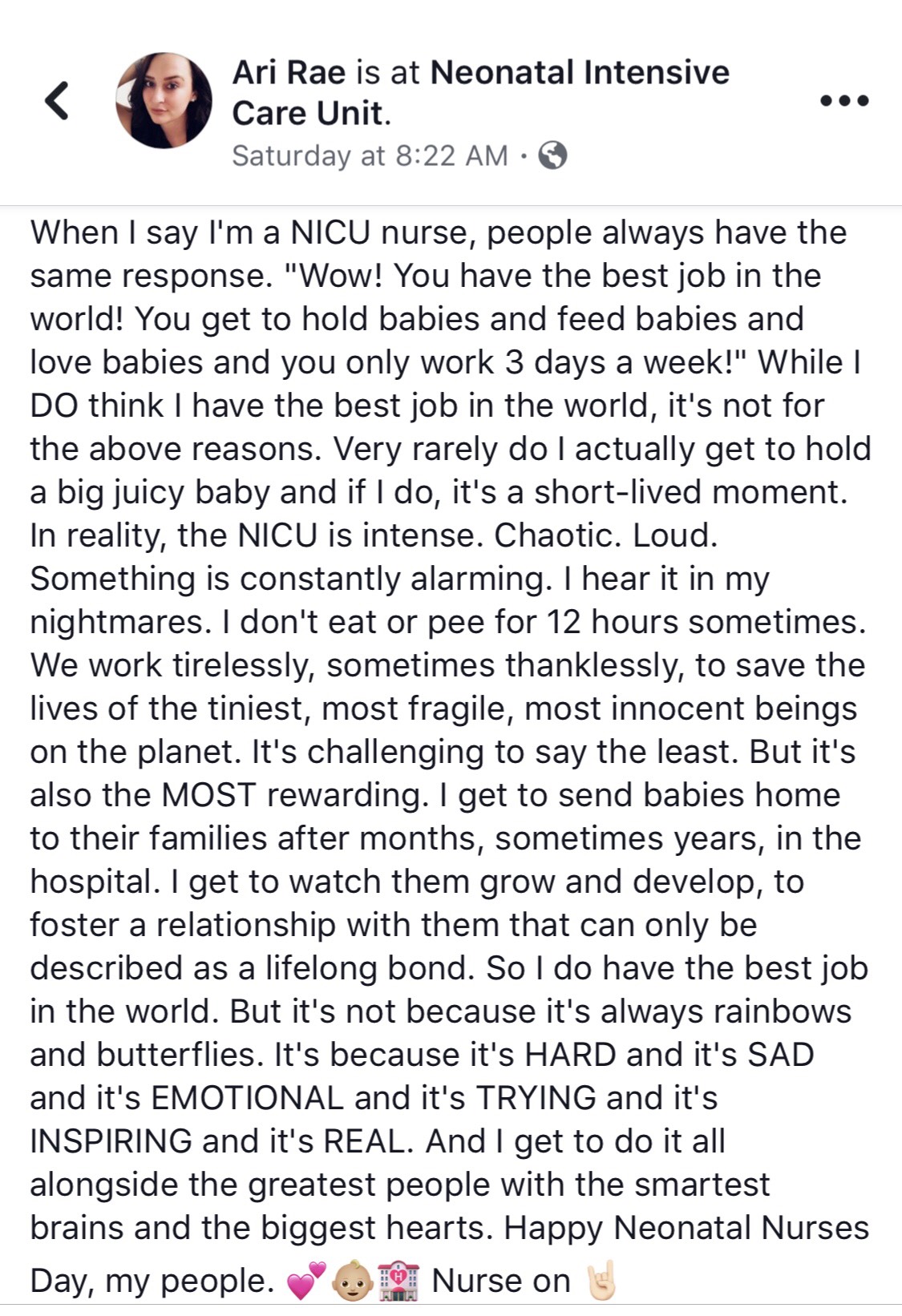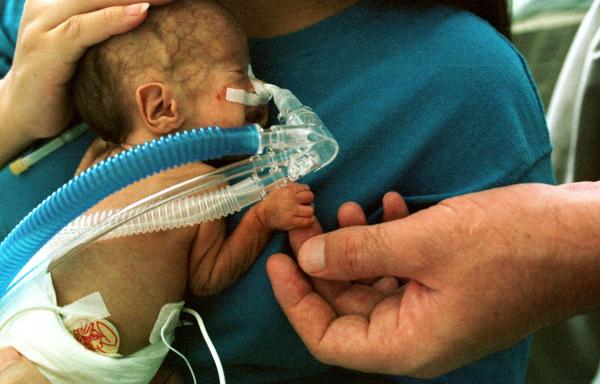It was just Happy Neonatal Nurses Day, but it seems like every day we celebrate another occupation; and when everyone is honored, often no one is honored. I want to take a moment to recognize and hold in awe neonatal nurses.
A neonatal intensive care unit (NICU) nurse wrote on Facebook (1) that when people discover her vocation, they frequently respond
“Wow! You have the best job in the world! You get to hold babies and feed babies and love babies and you only work 3 days a week!”
She sought to clarify the many misperceptions of this reaction by writing
“While I DO think I have the best job in the world, it’s not for the above reasons. Very rarely do I actually get to hold a big juicy baby and if I do, it’s a short-lived moment. In reality, the NICU is intense. Chaotic. Loud. Something is constantly alarming. I hear it in my nightmares. I don’t eat or pee for 12 hours sometimes. We work tirelessly, sometimes thanklessly, to save the lives of the tiniest, most fragile, most innocent human beings on the planet. It’s challenging to say the least. But it’s also the MOST rewarding. I get to send babies home to their families after months, sometimes years, in the hospital. I get to watch them grow and develop, to foster a relationship with them that can only be described as a lifelong bond… So I do have the best job in the world. But it’s not because it’s always rainbows and butterflies. It’s because it’s HARD and it’s SAD and it’s EMOTIONAL and it’s TRYING and it’s INSPIRING and it’s REAL. And I get to do it all alongside the greatest people with the smartest brains and the biggest hearts. Happy Neonatal Nurses Day, my people. Nurse on.”
Take a moment to let the images wash over you. Consider holding a baby that weighs barely a couple pounds and is attached to medical paraphernalia that must remain in proper position to avoid injury, caring for this fragile life. Skip the consideration of the education and training that allows an individual to do this day in and day out. Concentrate on the emotional stamina and fortitude this requires, to care for both their patient and their parents. Hyper-vigilance is essential and exhaustive in this environment to achieve those goals. Every single fluid and therapy administered must be calculated by the smallest measurements, because literally the wrong decimal point can prompt a catastrophic outcome. So, it is checked, re-checked then done again.
Neonatal teams are some of the best there are in medicine. They are highly dedicated and lose sleep so families don’t have to while simultaneously absorbing all of their stress and anxiety.
Everyone being well in pediatrics is a fallacy. Children get pretty much all of the diseases adults get and physicians or nurses who care for them also navigate the many secondary patients that come with them (e.g. parents, grandparents, blended families). No matter the discipline in medicine, it is accompanied by a unique set of worries. Understanding the gravity of the responsibility a person takes on when she is honored and privileged enough to be the formal medical caregiver to another person can’t be understated.
If we cannot stop to appreciate the humanity and take a second to reflect on what motivates others to enter the field, then we will lose way more than we will ever win. What we think we know, when not backed by anything but biased belief, hampers the many avenues of progress just waiting to take hold.
Note:
(1) Link here to see full post:





